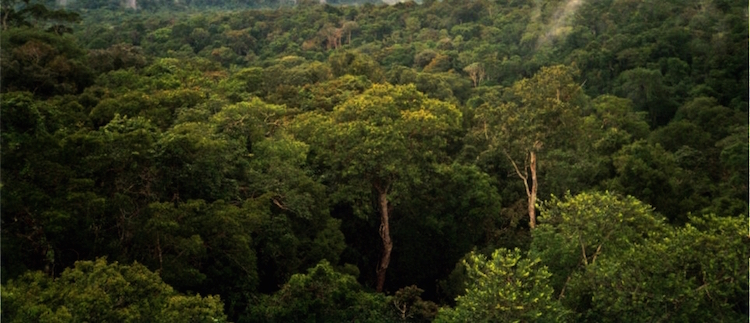Analysis by J C Suresh
TORONTO (IDN) – The Arctic Partnership announced in Washington, D.C. by U.S. President Barack Obama and Canadian Prime Minister Justin Trudeau has been welcomed by Executive Secretary Braulio Ferreira de Souza Dias of the UN Convention on Biological Diversity (CBD).
Although focused on climate action, the partnership agreed on March 10 has far-reaching consequences for biodiversity in the Arctic, including the role of indigenous peoples and their traditional knowledge, he said.
Opened for signature at the Earth Summit in Rio de Janeiro in 1992, and entering into force in December 1993, the CBD is an international treaty for the conservation of biodiversity, the sustainable use of the components of biodiversity and the equitable sharing of the benefits derived from the use of genetic resources.
With 196 Parties up to now, the Convention has near universal participation among countries. The Convention seeks to address all threats to biodiversity and ecosystem services, including threats from climate change, through scientific assessments, the development of tools, incentives and processes, the transfer of technologies and good practices and the full and active involvement of relevant stakeholders including indigenous and local communities, youth, NGOs, women and the business community.
The Cartagena Protocol on Biosafety and the Nagoya Protocol on Access and Benefit Sharing are supplementary agreements to the Convention. The Cartagena Protocol, which entered into force on September 11, 2003, has to date been ratified by 170 Parties. It seeks to protect biological diversity from the potential risks posed by living modified organisms resulting from modern biotechnology.
The Nagoya Protocol, which entered into force on October 12, 2014 and to date has been ratified by 73 Parties. aims at sharing the benefits arising from the utilization of genetic resources in a fair and equitable way, including by appropriate access to genetic resources and by appropriate transfer of relevant technologies.
Senegal is the latest country to ratify the Nagoya Protocol. In addition, South Africa issued the second internationally recognized certificate of compliance on March 23, 2016, following a permit made available to the Access and Benefit-sharing (ABS) Clearing-House.
“With the ratification by Senegal, 32 African countries have now ratified the Nagoya Protocol, sending a strong and clear signal of the region’s commitment to the implementation of the Protocol,” the CBD Executive Secretary said.
“Our objective is to reach 100 ratifications by the time of the second meeting of the Parties to the Protocol, which will be held in Cancun, Mexico, in December of this year. The theme for the meetings in Mexico in December is “Integration of biodiversity for well-being”.
This is linked to this year’s International Day for Biological Diversity on May 22 when we will be celebrating biodiversity and its role in sustaining people and their livelihoods. ABS is an important component of this theme.
A U.S.-Canada Joint Statement on Climate, Energy, and Arctic Leadership said on March 10 that President Obama and Prime Minister Trudeau share a common vision of a prosperous and sustainable North American economy, and the opportunities afforded by advancing clean growth.
Furthermore, the leaders emphasized the importance of the U.S. and Canada continuing to cooperate closely with Mexico on climate and energy action and commit to strengthen a comprehensive and enduring North American climate and energy partnership.”
The U.S.-Canada joint statement envisages a shared Arctic leadership model. Beyond deepening cooperation to reduce greenhouse gas emissions – which will have an outsized impact on the long-term health of the global Arctic – President Obama and Prime Minister Trudeau announcd a new partnership to embrace the opportunities and to confront the challenges in the changing Arctic, with Indigenous and Northern partnerships, and responsible, science-based leadership.
The joint statement stresses that the Arctic communities rest on the territories of Indigenous peoples, who possess a wealth of knowledge, distinct ways of life, and a richness of cultural diversity. It is home to natural marine, land and air migrations that know no borders. It is also the frontline of climate change.
Acting for “a shared future”, President Obama and Prime Minister Trudeau call on all Arctic nations and those with Arctic interests to embrace a new future for Arctic leadership, with a view to conserving Arctic biodiversity through science-based decision making and working directly with indigenous partners, state, territorial and provincial governments.
Another objective aims at incorporating Indigenous science and traditional knowledge into decision-making. “Canada and the U.S. are committed to collaborating with Indigenous and Arctic governments, leaders, and communities to more broadly and respectfully include Indigenous science and traditional knowledge into decision making, including in environmental assessments, resource management, and advancing our understanding of climate change and how best to manage its effects,” the joint statement said. [IDN-InDepthNews – 30 March 2016]
IDN is the flagship of International Press Syndicate.
Photo: Amazon Rainforest in South America | Credit: Wikimedia Commons – Phil P Harris – Own work 2016
IDN-InDepthNews | Analysis That Matters
Send your comment | Subscribe to IDN newsletter
Follow us on Twitter and Facebook:
http://twitter.com/InDepthNews
http://www.facebook.com/IDN.GoingDeeper

